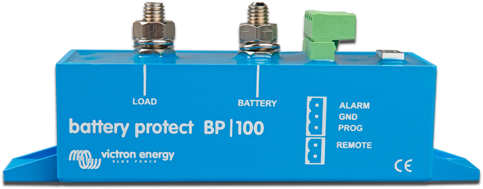whatismouse
New Member
- Joined
- Oct 11, 2020
- Messages
- 76
So when I designed my system I actually removed the converter that came with the RV and went with a 48V>12V step-down converter. This works fine but there are a few issues. One is that because the converter is upstream of the inverter, it is not in communication with the LVD of the inverter. In other words I can run the batteries down to the LVD on the inverter and then my 12V loads can continue running the battery down until the BMS trips. This is not ideal. My big 12V load is the furnace fan, which if running all night on a cold night, is not an insignificant amount of power consumption. This means in order to avoid running my batteries all the way down I have to keep track of where my battery SOC is and stop using AC loads well before the LVD. This introduces human input into my system which I'd rather avoid, especially as I rent out my RV.
I remember reading about a perpetual power loop necessitating that the converter must be disabled upon adding an inverter. And so I removed the converter and the 12V battery and added the 48>12 converter. But I'm not sure this ever applied to my system, as the inverter is drawing upon the added 48V bank; I could have left the 12V battery in place.
I'm considering adding the 12V battery back, as well as the original converter, and removing the DC/DC converter. I don't see why the old AC>DC converter would cause a perpetual power loss loop, as the inverter is drawing from the 48V bank, and the 12V loads could draw from the 12V battery.
Then all my loads are downstream of the inverter.
Maybe this creates a new problem. When the LVD hits, my 48V battery bank will not have any draws. But the 12V battery still would supply the 12V panel and allow for loads, and with no way to keep it charged now, it will die. But maybe I don't even need the battery, if the converter itself is sufficient to supply loads?
So I'm confused on what to do and how others have solved this issue.
I remember reading about a perpetual power loop necessitating that the converter must be disabled upon adding an inverter. And so I removed the converter and the 12V battery and added the 48>12 converter. But I'm not sure this ever applied to my system, as the inverter is drawing upon the added 48V bank; I could have left the 12V battery in place.
I'm considering adding the 12V battery back, as well as the original converter, and removing the DC/DC converter. I don't see why the old AC>DC converter would cause a perpetual power loss loop, as the inverter is drawing from the 48V bank, and the 12V loads could draw from the 12V battery.
Then all my loads are downstream of the inverter.
Maybe this creates a new problem. When the LVD hits, my 48V battery bank will not have any draws. But the 12V battery still would supply the 12V panel and allow for loads, and with no way to keep it charged now, it will die. But maybe I don't even need the battery, if the converter itself is sufficient to supply loads?
So I'm confused on what to do and how others have solved this issue.



